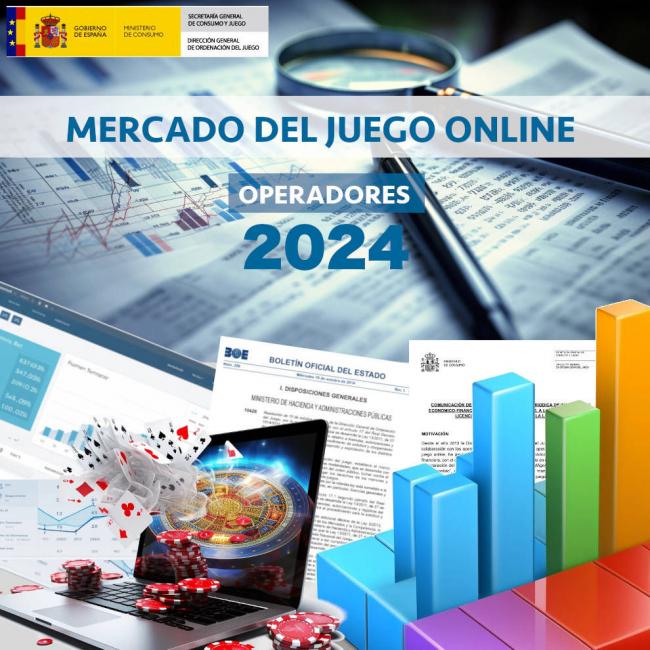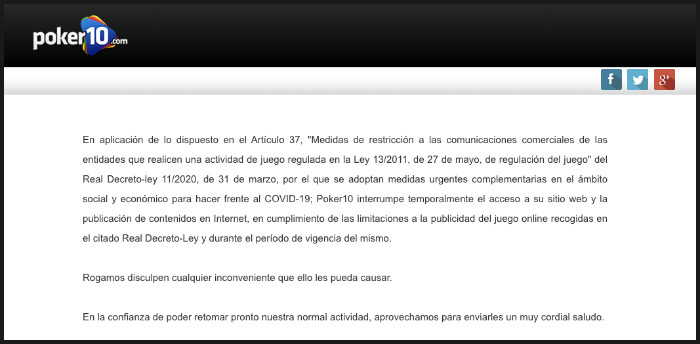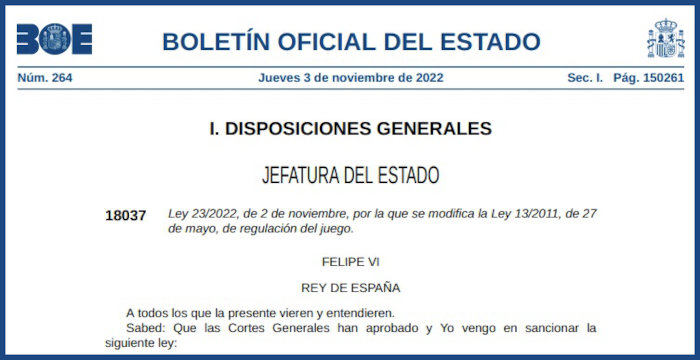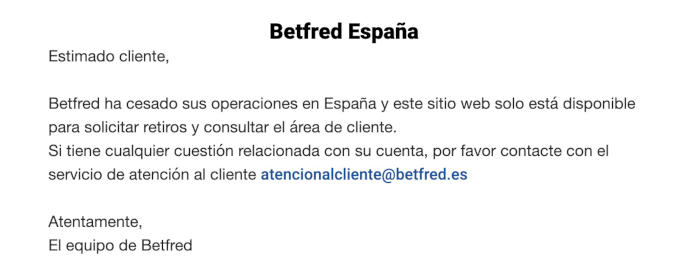As 2023 comes to an end, we review the crucial moments in these nearly twelve years of the regulated market in Spain, analyze the current situation, and the challenges that present themselves in 2024. All from the perspective of the operators at a time marked by a possible escalation in the regulatory wave that has made operating in Spain a real exercise in survival.
The online gaming market in Spain, regulated since 2012, has undergone a series of significant changes to date. And the actors who have suffered the most from these changes have been -obviously- the operators.
Although in the coming days we will analyze how these times are so significant for players, affiliates, or technology providers, in this first part of this SPECIAL INFOPLAY, we focus on the licensed operators.
We therefore review what has remained of the early years when positioning in a stable and steadily growing commercial sphere was paramount, and how the focus of companies has changed after the drastic changes that have come at turning points like those we will detail in the following sections.
Initial Years of Settlement and Gradual Evolution
The progress since 2012 in this new regulated gaming environment can be defined as gradual and steady. Something that does not prevent us from looking back and seeing no doubt that the online gaming market in Spain has experienced significant growth.
After several years of an unsustainable situation, with sports sponsorships even on the Real Madrid shirt (bwin), the legalization and regulation of online gaming attracted numerous national and international operators, increasing the offer and variety of games available.
Reports from the DGOJ since then have shown a sustained increase in revenues generated by online gaming, something from which operators have not excessively benefited, as since 2012 they have seen a surge in advertising prices, the major problem present between 2012 and 2018 for all companies seeking to grow their market share.
In any case, the 2012-2018 period can be summarized as a time of fairly superficial legislation that allowed for most companies to have room to make initial contact with reality and to compete on different fronts, whether it be sports sponsorships, technological innovation, synergies with physical presence, brand recognition, customer communications (CRM), promotions, or positioning on Google (both organic and paid).
A dynamic and interesting scenario, with novelties from time to time such as the activation of operators that did not start their activities in 2012, the launch of operations in other verticals (for example when 888.es, which operated in casino and poker, launched its betting website 888sport), the arrival of the slots product, or session time limits for slots and other responsible gaming measures.
A period in which the DGOJ showed in its reports that higher revenues were being generated and that there were more and more operators, within the closed list of license holders. This generated at the same time higher tax contributions and employment growth in the sector.
Impact of the COVID-19 Pandemic
Coinciding with the first socialist government of Pedro Sánchez (from June 2018 to January 2020), the Dignity Decree in Italy demonstrated that the government of the country itself could put a stop to a natural state of affairs and align it with the existing reality. This was greatly accentuated with the arrival of the pandemic and the resulting lockdown in the spring of 2020.
Thus, while betting houses saw how, with the cancellation of sporting events, their future could depend on their offer of other verticals, especially casino but not forgetting poker or products like betting on virtual sports or eSports; the government used the biased assertion that online gaming volume had increased to dramatically limit advertising.
Even affiliates were forced to stop reporting on news and gaming content
This situation, initially temporary, became indefinite through the decisive action of the Minister of Consumer Affairs, who would prohibit most of the sector's promotional practices by Decree Law, even contacting twenty-five First and Second Division clubs that had sponsorship contracts with sports betting companies to terminate them.
So, despite the steep decline in sports betting, due to the suspension of international sports offerings, participation in online casino and poker games became the excuse to restrict advertising across the entire sector, focusing especially on the betting vertical, precisely the most severely hit by the pandemic.
Advertising Restrictions
The second government in Spain of Pedro Sanchez did nothing but continue its clear restrictive stance towards the gaming sector and, as demonstrated in the Royal Decree on Commercial Communications of Gaming Activities in Spain, continued to eliminate digital and audiovisual commercial communications, sponsorships or bonuses, and betting forecasters.
It would be a mistake to consider this and other subsequent legislation as merely advertising restrictions because they essentially affect how operators communicate with players and how they present their offers and their gaming products themselves.
This situation can be considered even more serious for those operators who entered the market in the last period of license granting, which closed at the end of 2018 and who had little time to make themselves known. Cases like those we exemplify with sponsorships of first division teams (Cadiz CF and Dafabet, Deportivo Alavés, Levante UD and Real Betis with Betway, or Granada with Winamax).
Present: Execution of Survival Strategies
After COVID and the legislative measures that have put a stop to almost any form of commercial communication, the sector is immersed in a routine of subsistence in the face of constant adversities, having become one of the most regulated markets in the world due to the interventions of the Ministry of Consumer Affairs.
The latest quarterly report from the General Directorate for the Regulation of Gambling shows an average monthly active gaming accounts of 1,134,993, with no significant changes in the last two years.
But even in this harsh context, operators like Sportium have managed to stand out. Forced not to be able to boast of such important agreements as those of the Professional Football League or Manchester City, but with great displays of audacity and Corporate Social Responsibility supported by the Sportium Foundation, the operator has been able over these years to carry out all kinds of actions that have positioned it among the absolute leaders of the sector, despite starting in 2012 at a clear disadvantage compared to companies that were already operating in a legal gray area in Spain.
The success story of
Sportium, born from a joint venture between two physical giants like CIRSA and LADBROKES, shows how even in these circumstances a leader can emerge, now a digital leader in Spain and beyond, thanks to its dedication and innovation. But above all, to adapting to reality.
In addition to this example, an excellent commitment to an omnichannel offer was also the hallmark of national companies like Luckia, Casino Barcelona, Casino Gran Madrid, or Goldenpark.
2024 - Insecurity and Fear of the German Model
Among the possible threats in 2024, a legal change is anticipated that could impose limits on joint deposits, similar to the German model. This measure, currently under study, could pose significant challenges for operators since after a year of implementing a similar model, Germany has seen an increase in illegal gambling after precisely forcing players to set a global deposit limit across all operators.
This reality will arrive in a current situation that we can define as broad-spectrum competition, characterized not only by the difficult challenge of dealing with changing and threatening regulation but also by the emergence of new heterogeneous rival operators that complicate matters significantly. Especially in the casino, dozens of operators compete with a similar offer in the context of scarce licenses. Thus, operators with online casino as their main product, such as Casumo, 777.es, or Tonybet, compete with operators that arrived either at the beginning (GoldenPark, Codere, Luckia, Versus...) or in the wave of new licenses in 2018 (Marathonbet, betway, LeoVegas...) competing with the more established international operators that lead verticals such as bet365, Winamax, 888, PokerStars, Betfair, or bwin.
Related to the above, but also focused on communication, social media presence, and CRM, technological innovations such as the integration of AI in SEO highlight the need for operators to optimize various content formats, such as video, audio, and images. This is because many of them cannot be advertised on the few existing channels and must comply with legal limitations.
On a positive note, there is observed a decrease in sanctions against licensed operators. A logical trend since the DGOJ has focused on monitoring unregulated operators. In any case, in 2023, up to half a dozen brands that were active until now have ceased operations, such as Betfred.es.
In addition to several points we have mentioned in previous sections, both 2023 and 2024 should serve to complete the technical and legal compliance that licensed gaming operators must demonstrate following the latest legal developments. Expanding their staff, with people dedicated exclusively to dealing with Responsible Gaming, implementing self-control tools (such as deposit limits and self-exclusion), or improving systems that are secure and resistant to fraud and money laundering.
Another trend more current than ever is to see how the autonomous cities of Ceuta and Melilla are becoming key centers for gaming companies in North Africa. The year 2023 brings a growing trend of digitalization and relocation to these advantageous destinations in every sense, with the entry of operators, suppliers, and digital service companies.
18+ | Juegoseguro.es – Jugarbien.es







